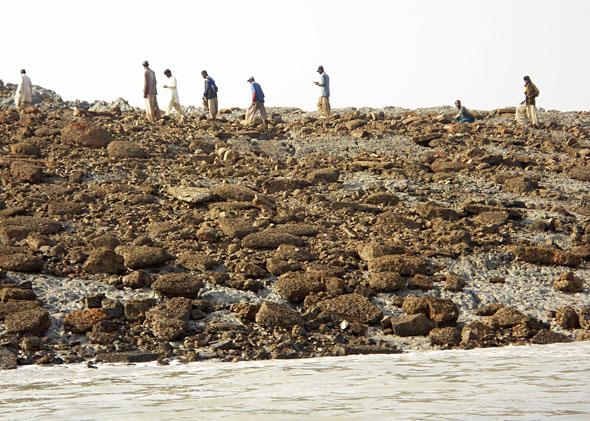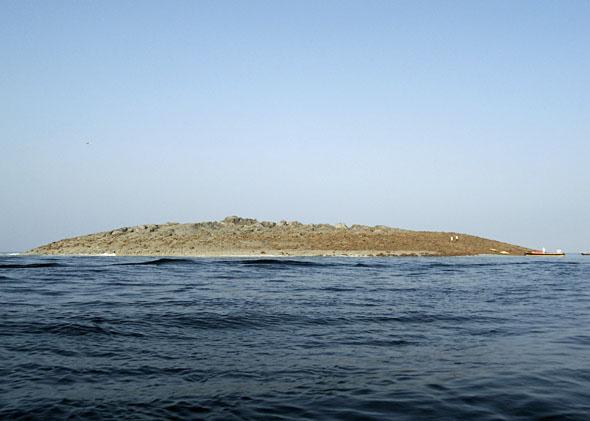The deadly earthquake that hit Pakistan on Tuesday was so powerful that it appears to have created a new island—or something.
The quake, whose epicenter was inland, propelled some type of land formation to rise clean out of the water some 320 miles away, about a third of a mile off of Pakistan’s Gwadar coastline, Reuters reported:
Television channels showed images of a stretch of rocky terrain rising above the sea level, with a crowd of bewildered people gathering on the shore to witness the rare phenomenon.
The island is said to be about 20 to 40 feet high and 100 feet long. Photos showed amazed locals milling around on top of it.
Don’t expect it to stick around forever, though. Experts told NBC News it would be highly improbable for an earthquake to cause the actual seabed to rise up so far from its epicenter. Rather, the formation may be the result of a “mud volcano“—a “jet of mud, sand and water that gushed to the surface as the temblor churned and pressurized that slurry under the ocean floor.” Local residents told the network they saw a similar island appear off the coast following a 1968 earthquake, then sink out of sight a year later.
But one geologist told Yahoo News the formation could also be a result of a “rotational landslide” rather than a mud volcano. We likely won’t know for sure until scientists get a chance to study the thing more closely.

Stringer/Reuters
